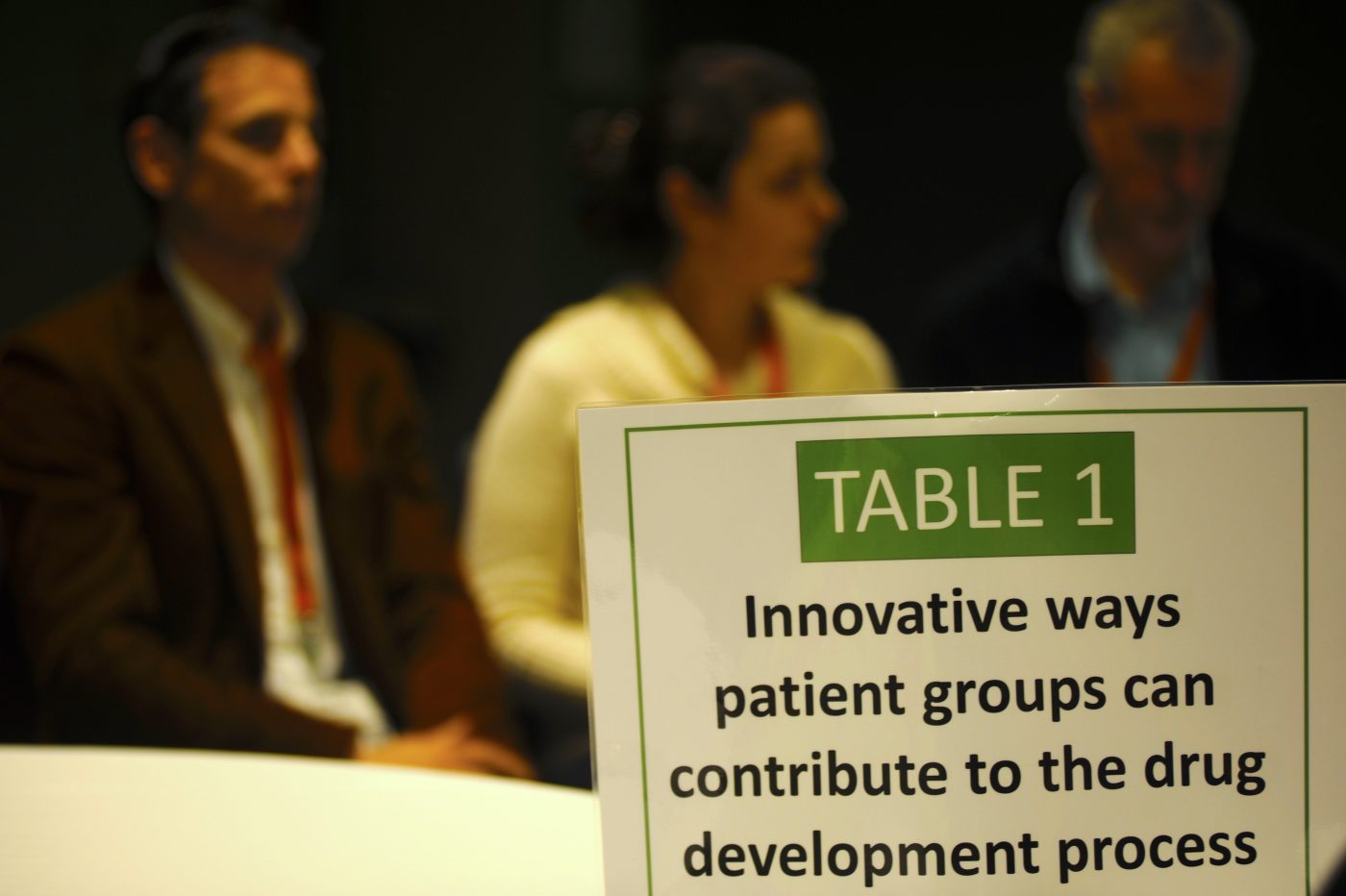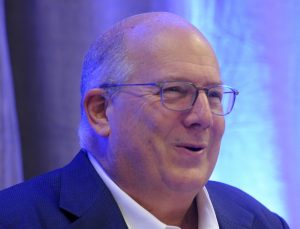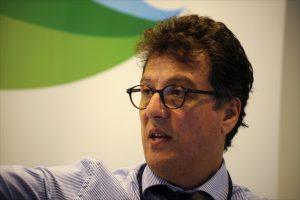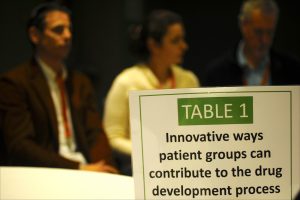WODC 2019 Organizers Expect 1,200 to Attend Rare Disease Conference in April

Rare disease patient advocates attend last year's WODC meet in Barcelona. (Photo by Larry Luxner)
The world’s biggest gathering of rare disease researchers, patient groups, pharmaceutical executives, and government officials is planned for April 10–12 in a Washington, D.C., suburb.
Some 1,200 people have already registered to attend the World Orphan Drug Congress (WODC) USA 2019, set to take place at the Gaylord National Harbor Hotel in Oxon Hill, Maryland.
About 35 percent of those attendees will come from outside the United States, said André Singer, project director at Terrapinn, a New York-based events organizer.
“This is the largest global rare disease conference,” Singer told BioNews Services, which plans to cover WODC 2019 on behalf of this website. “Since its inception in 2011, it has always focused on how to advance rare diseases research and expedite orphan drug development. That’s the commercial focus of the event.”
The event’s three-day agenda includes 240 sessions and 350 speakers, with delegates from 50 countries in the Americas, Europe, Africa, Asia, and Oceania. Nearly 200 patient groups have confirmed their participation — from the Alport Syndrome Foundation, Parent Project Muscular Dystrophy and CureDuchenne to the European Haemophilia Consortium and Friedreich’s Ataxia Research Alliance — as have more than 70 sponsors and exhibitors.
The CEOs of two of the world’s largest rare disease umbrella groups — Peter Saltonstall of the National Organization for Rare Disorders (NORD), and Yann Le Cam of Paris-based Eurordis — are among the top speakers. Also making presentations will be representatives of the U.S. Food and Drug Administration (FDA), and national rare disease associations for Argentina, Bulgaria, Canada, China, India, Spain, and Russia.
“Access and affordability, which relates to pricing and reimbursement, are the big contentious areas we are tackling this year,” Singer said. “This includes the evolving landscape for advanced therapies and talking about how cell and gene therapies are being developed for rare diseases.”
“The contract manufacturers are at overcapacity already to handle the growing demand for cell and gene therapies,” he added. “One of the delivery methods for gene therapy is viral vectors — but this is an evolving field. Batch efficiency and production of those vectors is quite troublesome.”
Addressing those issues will be Brian Kaspar, chief scientific officer at AveXis, along with Peter Marks, director of the FDA’s Center for Biologics Evaluation and Research (CBER).
Also scheduled to speak are the CEOs of half a dozen leading pharmaceutical companies: Arndt Rolfs of Centogene, Sandy Macrae of Sangamo Therapeutics, Samarth Kulkarni of CRISPR Therapeutics, André Choulika of Cellectis, Mark Rothera of Orchard Therapeutics, and Matt Patterson of Audentes Therapeutics.
Two executives at Biogen — André Liamas and Tom Rising — will offer an overview of the global reimbursement landscape for the company’s spinal muscular atrophy (SMA) injectable therapy Spinraza (nusinersen), along with a Brazil case study. Mark Galbraith, head of quality control and analytical sciences at Spark Therapeutics, will talk on “Challenges in analytical development for gene therapy for rare diseases and Luxturna as a case study.”
Likewise, Christopher Austin, director of the National Center for Advancing Translational Sciences (NCATS) at the National Institutes of Health, is to deliver a keynote address on “continuing the march towards curative therapies” for the rare disease community.
“Another big focus is patient data, artificial intelligence and digital health,” Singer said, noting a keynote panel on April 11 that includes NORD’s Saltonstall and Le Cam of Eurordis, as well as Simon Kos, chief medical officer of Microsoft; James Greenwood, CEO of the Washington-based Biotechnology Innovation Organization, and Oodaye Shukla of HVH Patient Precision Analytics.
A panel on potential medicines for rare cancers will be headed by Samit Hirawat, head of oncology global development at Novartis. John Maraganore, CEO and director of Alnylam Pharmaceuticals, is to speak on advancing RNAi therapeutics as a whole new class of medicines.
The event’s 40-plus sponsors include title sponsor Centogene; platinum sponsors Eversana and Inceptua; and gold sponsors Clinigen, McKesson, HVH, Invitae, Pfizer Rare Disease, Orchard, Partners4Access,PPD, Premier Research, and Syneos Health.
Registration prices before March 1 range from $1,570 for a group booking of three or more attendees for a two-day pass to $2,560 for an individual pass covering all three days. For more information, please click here.









